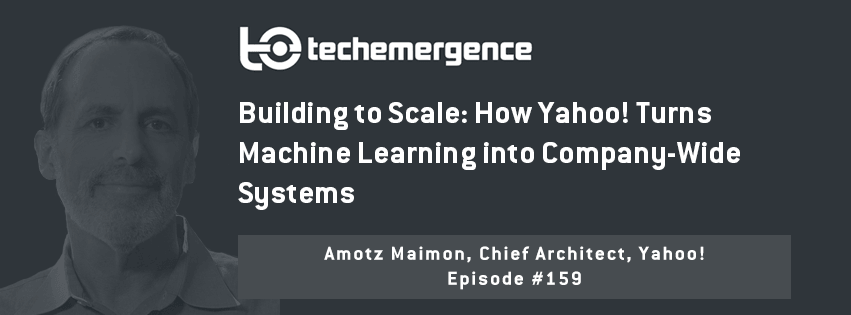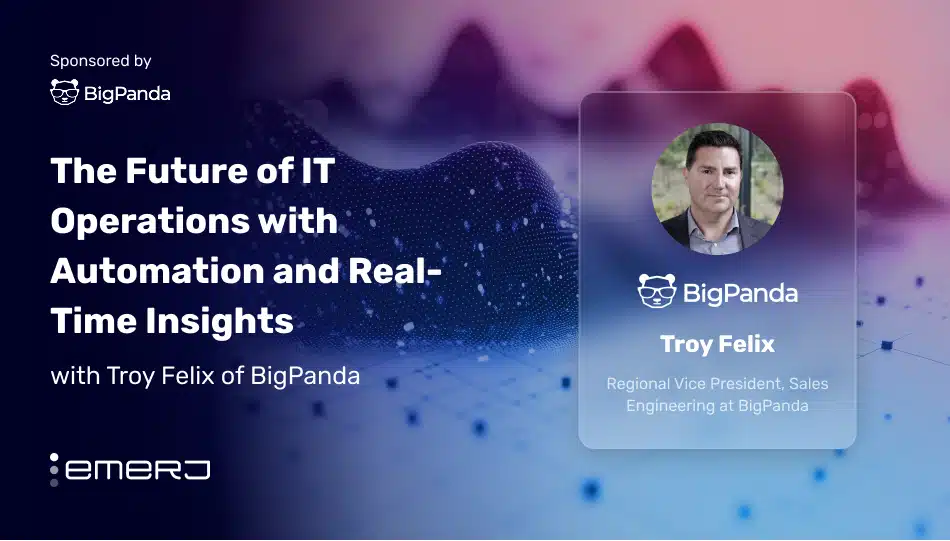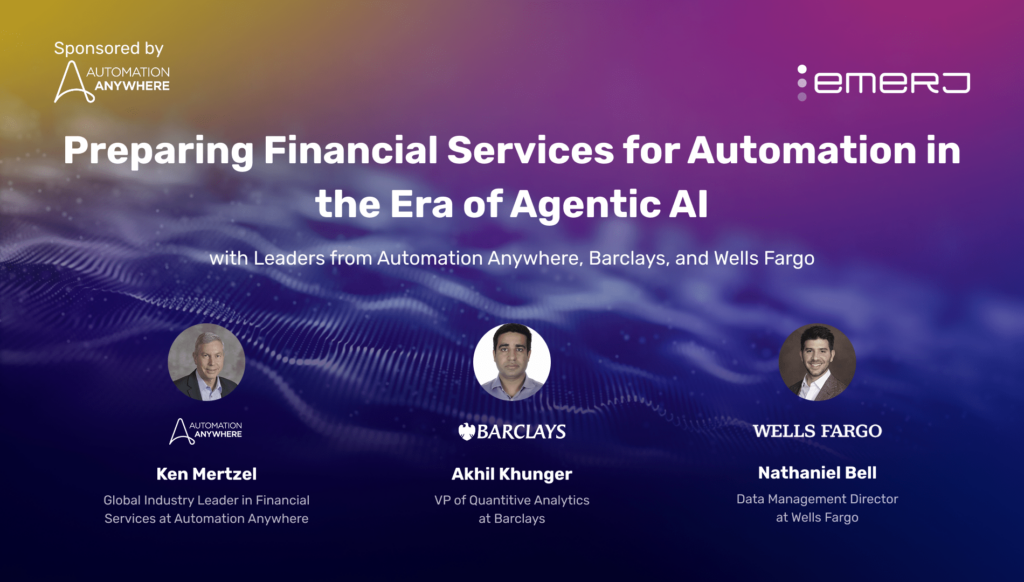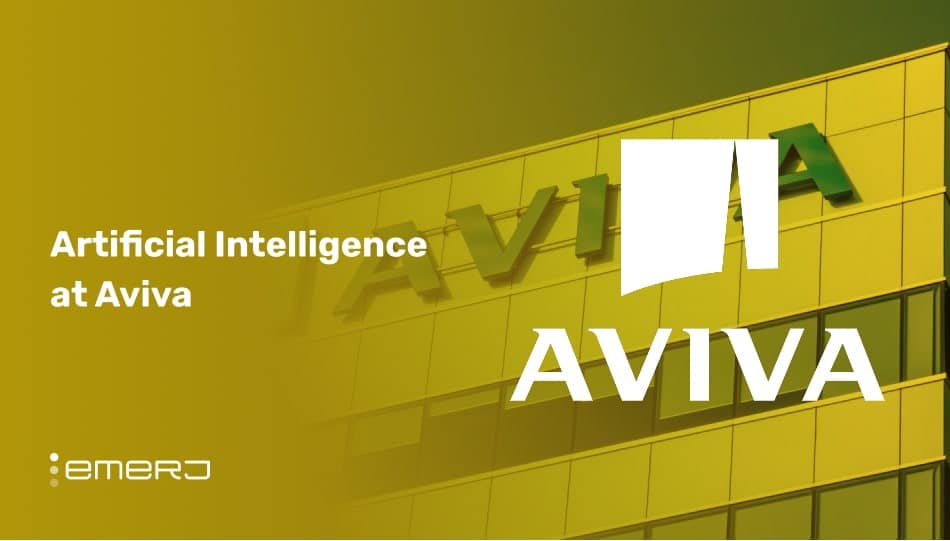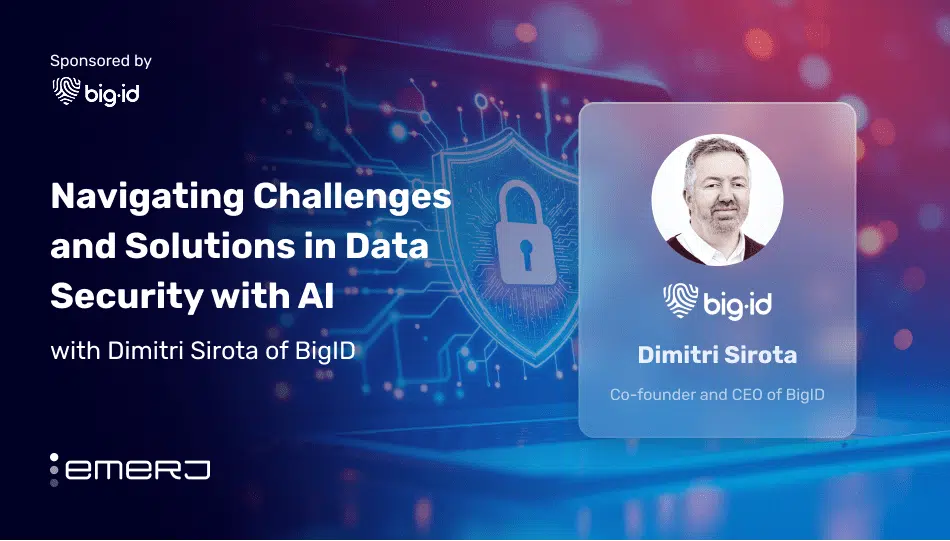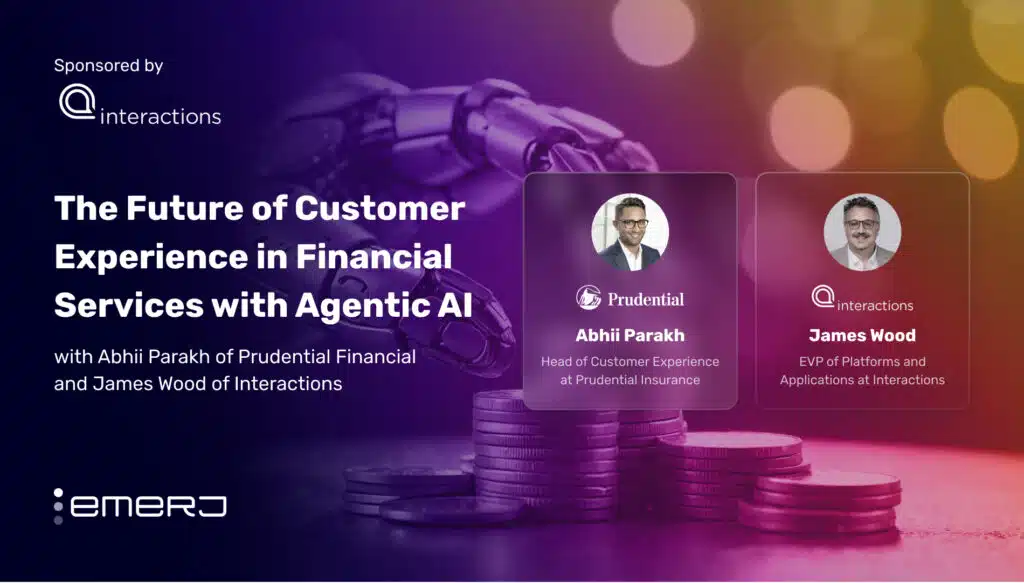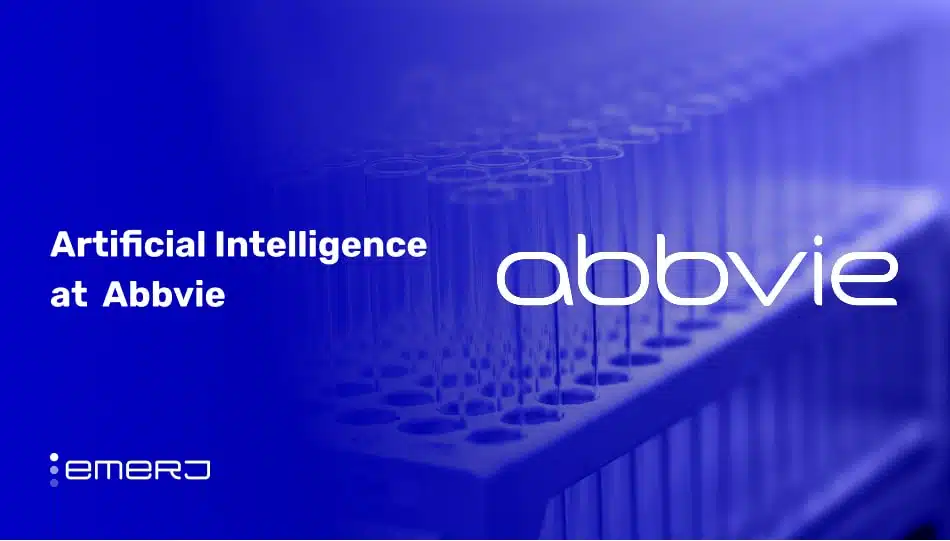Episode Summary: Many employers (and employees) are familiar with the ‘painful’ learning curves of using multiple software products or platforms at once, but these may not be gripes you want to share with Amotz Maimon. This week, we feature an interview recorded at Yahoo headquarters with its Chief Architect, Amotz Maimon. He speaks about technology governance and how companies small and large can make faster and better decisions around what technologies to use, how to integrate and streamline the processes, and how to integrate machine learning into the mix (which Yahoo has been using for the past decade). This episode provides important insights for those looking to scale such technologies within their own businesses.
Expertise: SaaS, cloud computing, enterprise software
Recognition in Brief: Amotz Maimon joined Yahoo in recent years as Chief Architect to be part of Yahoo’s strategic turn-around driving innovation and technology excellence. He leads Yahoo tech council and is responsible for Yahoo’s technology strategy, architecture, and governance; including cloud platform, big data systems, and the overall infrastructure powering all of Yahoo products and experiences. Amotz received his Bachelor’s of Science in Mathematics and Computer Science from Tel Aviv University and his MBA in Business from Pepperdine University.
Current Affiliations: Chief Architect at Yahoo!, Advisor at Glilot Capital
Interview Highlights:
(1:52) What do you see as a good way of thinking through how to get ROI from this amorphous thing, machine learning, for the smaller and maybe midsize businesses of the world?
(3:25) When you mention business partners with domain expertise, what sort of examples of vendors or businesses are you referring to?
(5:02) Do you see that as something reasonable in the coming years (brick and mortar) where we’ll really be able to start optimizing based on visual data, or purchases made, or how long people spend in stores?
(7:25) At a big company like Yahoo, how do you keep the reigns on machine learning as a tool?
(10:20) If some applications are being built with R and Spark and whatever other languages, is it possible to ensure the kind of communication between those applications? Can we be using multiple languages for a big similar application? Does that present challenges with those different languages or are you able to bring it up to the processing framework and have it make sense there?
(13:17) Is this a council (technology council) specifically dedicated to governance kind of questions, what technologies are going to be used…is that sort of the sole function of that business unit?
(16:55) When companies are beginning to scale…what might they want to bear in mind even at the smaller level? Does it make sense to talk to talk to companies in similar sort of business who are larger…what kind of thought processes or homework might they do to prepare for the same kind of governance concerns of a growing company?
(20:09) What’s the kind of information that you guys need to have to make those calls…what kind of research needs to be done, what do you need to feel confident about a decision when you know it’s that wide open, the new frontiers?
(23:09) Is part of it kind of attuning to whose investing in what elsewhere in the industry – are those kind of cues and clues as to how much is being invested in this space by other bigger industry players and how well it’s worked out for them or how much it’s flopped?


